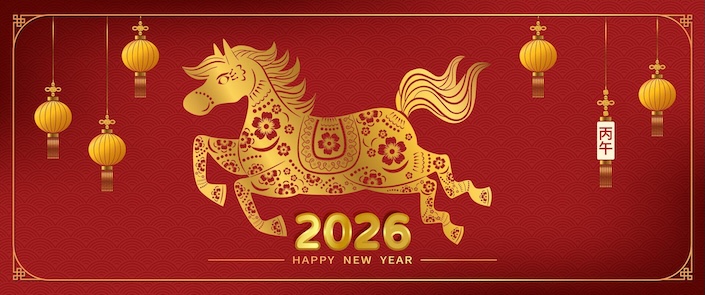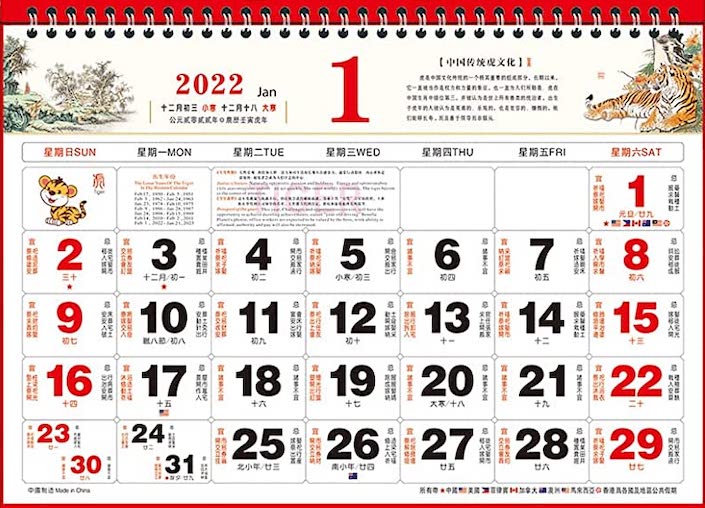Dancing in the Moonlight with the Year of the Rabbit


Learn Chinese in China or on Zoom and gain fluency in Chinese!
Join CLI and learn Chinese with your personal team of Mandarin teachers online or in person at the CLI Center in Guilin, China.
This article explores the fourth year in the 12-year Chinese zodiac cycle: The Year of the Rabbit. We invite you to leap in and discover this important zodiac sign that embodies elegance, peace, and a dash of luck.


What is the Chinese zodiac?
“Each person has one, each family has several, and the whole world has 12.” Without much knowledge of Chinese culture, guessing the answer to this ancient Chinese riddle is difficult. For those in the know, however, the answer is obvious: it’s referring to the 12 animals of the Chinese zodiac.
Brief introduction to the Chinese zodiac
In Chinese, these 12 zodiac animals are called 12 生肖 (shēngxiào). These animals, in their order of appearance, are the Rat, Ox, Tiger, Rabbit, Dragon, Snake, Horse, Goat (also translated as Ram and Sheep), Monkey, Rooster, Dog, and Pig.
There is little consensus regarding the origins of the 12-year Chinese zodiac calendar. Some believe it grew out of the story of a Great Race between various animals organized by the Jade Emperor.
Others claim that each animal’s place in the cycle relates to the specific time that each is most active during the day. These are just two of the countless origin stories that have circulated throughout China and other Asian countries for centuries.
Regardless of its origins, the Chinese zodiac calendar has played and continues to play a significant role in shaping the traditions, holidays, and foods enjoyed in Asian communities all over the globe.


Each year of the 12-year Chinese zodiac calendar is associated with a specific animal.
Rabbit years
According to the Chinese zodiac, the Year of the Rabbit (兔年 tùnián) comes once every 12 years. Last century’s Rabbit Years were 1927, 1939, 1951, 1963, 1975, 1987, and 1999.
The most recent Year of the Rabbit was in 2011 and the next one will be in 2023. People born in any of these years are said to have been born under the sign of the Rabbit (兔子 tùzǐ).


Michael Jordan (迈克尔·乔丹 Màikè'ěr Qiáodān) is one of the world’s most famous Rabbits, born in 1963.
The rabbit in Chinese culture
The animals of the Chinese zodiac are more than lucky numbers and personalities, they symbolize a deep connection with China’s ancient cultural heritage. Like all the Chinese zodiac animals, rabbits have a unique place in Chinese history, mythology, and customs.
To better understand the meaning behind the Year of the Rabbit, it helps to first explore the importance of rabbits in Chinese culture.


The rabbit plays an important part in various ancient Chinese myths and legends.
The legend of the Jade Rabbit
When Westerners gaze at the 月亮 (yuèliang; moon), they may jokingly say that the moon is made out of cheese or that they see the Man in the Moon. When a Chinese person looks at the moon, however, they most certainly will see the Jade Rabbit (玉兔 Yùtù) standing under a cassia tree holding a precious elixir.
Like the Chinese zodiac itself, the legend of the Jade Rabbit has many different origin stories. One of the most common stories in China begins with the Jade Emperor disguising himself as a beggar. Once disguised, he embarks on a journey to find a worthy animal to help him prepare the elixir of life.
In this tale, the Rabbit willingly attempts to sacrifice himself as food for the beggar by jumping into a fire. However, the Rabbit is saved by the Jade Emperor, who then carries the Rabbit to the moon where he helps create the elixir of life.
Those looking for the Jade Rabbit will find his outline on the moon with his pestle and mortar, mixing the divine elixir to this day.
The concept of the Chinese zodiac has spread to other Asian countries, but other cultures have slightly different interpretations regarding the Jade Rabbit. In Japan, the Old Man of the Moon brings the Rabbit back to the moon to live with him because of the Rabbit’s great kindness.
According to this myth, the image seen on the surface of the moon is of a rabbit pounding out mochi rice cakes, not the elixir of life.


In China and several other Asian countries, people say that it’s possible to see a rabbit on the moon.
The Mid-Autumn Festival
中秋节 (Zhōngqiūjié) or Mid-Autumn Festival is one the most important festivals in Chinese culture and has been celebrated for thousands of years. The festival lasts three days.
Each year, it runs from the 13th to the 15th day of the eighth lunar month, which generally falls in late September or early October on the Gregorian calendar.
During this time, the Chinese believe that the moon is at its brightest and fullest, coinciding with harvest time in the middle of autumn.
Rabbits are associated with the Mid-Autumn Festival through legends regarding the legendary place on the moon called the 月宫 (yuègōng) or the Moon Palace. It is said that the lonely and helpless Moon Goddess Chang’e, who lives in the Moon Palace, allows the Jade Rabbit to keep her company.
The Jade Rabbit quietly creates the elixir of life under a neighboring cassia tree. Because of the purity of the moon palace, the Jade Rabbit does not move from his place. Gradually, he was apotheosized as a Moon Spirit.
The Mid-Autumn Festival is a very moon-focused holiday. Due to the strong association between the moon and rabbits in Chinese culture, images of rabbits are frequent sights during the Mid-Autumn Festival.
On the streets, in shops, and in houses of northern China, it is common to see figures with a rabbit head and a human body fashioned out of clay. Sometimes, rabbit figures can be seen wearing armor and decorated with little flags.
Invariably, the rabbits in these images will be depicted as upright and with their ears perked up, symbolizing sobriety and humor.
On the night of the Mid-Autumn Festival, children can be seen climbing up hills with paper rabbit lanterns to watch the moon and express their admiration for the Jade Rabbit. For their part, adults generally make sacrifices and pledges to the Moon Spirit for a successful harvest on this day.


Both the moon and rabbits are closely associated with China’s Mid-Autumn Festival holiday.
Lucky rabbits
In Chinese culture, the rabbit has the unique characteristic of waiting for an opportune moment and then leaping into action. More than any other zodiac animal, the rabbit symbolizes luck. In the zodiac origin story about the Great Race, all of the animals who would go on to become zodiac animals needed to race across a wide river.
The rabbit crossed the river by jumping from one stone to another in a nimble fashion. Halfway across, the rabbit appeared to be losing the race, but was lucky enough to grab hold of a floating log that later washed him to shore.
There are also several regional superstitions regarding rabbits in China. In northwestern China, buns shaped like rabbits are popular at weddings. The bride’s mother personally cooks the buns for her daughter, who takes some to her husband. This is done in hopes that the couple will soon give birth to children.
Not all superstitions involving rabbits are positive, however. For example, some people forbid pregnant women from eating rabbit meat out of the fear that their babies will be born with a harelip.


Rabbits are generally considered to be lucky animals in Chinese culture.
Let’s hop to it
Now that we’ve explored the significance of rabbits in Chinese culture, it’s time to find out what it means to be born in the Year of the Rabbit.
In China, it’s believed that the zodiac year in which one is born can influence one’s character, love life and career, among other things. Thus, if you or someone you know was born in the Year of the Rabbit, this fact could have some far-reaching implications.


Many people in China believe that being born in the Year of the Rabbit can have a big influence on many aspects of one’s life.
Rabbit personality traits
Let’s start with the impact of being born in the Year of the Rabbit on personality.
Rabbit people are said to live life free from constraints and are in constant pursuit of their ideas. Because of their weak wills, however, they have difficulty achieving great things.
In addition, Rabbits are sometimes too guarded and delicate when managing human affairs and personal matters. While they tend to be tenacious and ambitious, these characteristics may also lead to jealousy when they don’t get their way.
Those born under the sign of the rabbit do not like to argue, preferring peace and quiet. They are good listeners, excellent negotiators and tend to work well on a team.
They can be artistic and creative but also have a strong desire to avoid stressful and risky situations. They can also be pessimistic and insecure and therefore are hesitant to make quick changes.


People born in the Year of the Rabbit are said to be creative team-players.
Romantic rabbits: Compatibility
Chinese zodiac signs can play a significant role in how individuals pick their partners in romantic relationships. There are numerous theories and explanations for why certain zodiac animals are romantically compatible while others are not.
The best romantic partners for people born in the Year of the Rabbit are people born in the year of the Dog, Sheep, or Pig. All three share a compassionate, easy-going spirit that makes it easy for them to get along well with those born under the sign of the Rabbit.

Those born in the Year of the Rabbit are said to be most compatible with those born under the sign of the Dog, Sheep or Pig.
Rabbits and Sheep make an ideal match because they are both easy-going, amiable and romantic.
Rabbits and Dogs compliment each other because they are supportive of each other’s needs and want to see each other succeed. Rabbits and Pigs are also able to build successful relationships because they can arouse each other’s interests and sympathies.
Sometimes, it may take an individual born in the Year of the Rabbit more time to broaden their minds and find a romantic partner, but when they do, they will have a deep and fruitful relationship.


Rabbits make great romantic partners.
Suitable career paths
With a keen sense of art and a perceptual outlook on life, people born in the Year of the Rabbit are suitable for jobs related to literature, art, and music. They can show their talents in these fields and can thus accomplish both success and fame.
Rabbits can also be competent for jobs requiring delicacy and keen observation, such as business consultant, engineer, or translator.
Some additional suitable careers for people born in the Year of the Rabbit are writer, nurse, and food quality inspector.
Generally, people born under the Rabbit sign are not suitable for jobs that involve too much manual labor or are time sensitive. Their gentle composition leads them to prefer to let nature take its course.
They dislike arguing and are not suitable for jobs that require them to decide between justice and injustice. Also, they should avoid work that involves fierce competition, such as politics, because of their constant desire to avoid conflict.


Rabbits are creative and well-suited to low-stress jobs in fields like music, literature and the arts.
Naming babies born in the Year of the Rabbit
Selecting an appropriate, auspicious name is very important in Chinese culture.
When choosing a name for someone born in the Year of the Rabbit, careful selection of the characters used can help ensure that the person in question is blessed with good luck.
Chinese characters are made up of individual radicals, or 部首 (bùshǒu), of which there are 214. Radicals help with character recognition because many, but not all, radicals are complete characters in their own right.
Below are some radicals that can be combined with other characters to form auspicious names for people born in the Year of the Rabbit:
- 艹 (cǎo): This radical means grass. It relates to the fact that rabbits are herbivores. By using this radical in their child’s name, parents express their hope that their child will have plenty of food and drink. By extension, this radical can be said to symbolize happiness and wealth.
- 彡 (shān): This radical means hair. Rabbits are known for their beautiful fur. Thus, using this radical can add confidence to the sometimes shy and reserved personality of an individual born in the Year of the Rabbit.
- 口 (kǒu): This radical means mouth and is also often used to talk about things that have either literal or figurative mouths such as people, caves or wells. Use of this radical in the names of those born in the Year of the Rabbit is recommended because rabbits need a safe and stable cave-like home to accomplish their ambitious goals.


In China, parents will sometimes take zodiac signs into account when choosing an auspicious name for their children.
Celebrate the Year of the Rabbit in Guilin!
Chinese zodiac signs are just one of the many fascinating aspects of Chinese culture that continue to live on in modern China.
The best way to discover China is through the Chinese language itself. We invite you to join CLI’s expert teachers in Guilin for in-depth, individualized Chinese classes during which you’ll not only learn to speak Chinese but also gain valuable insight into the endless nuances of Chinese culture.


Studying Chinese in China is one of the best ways to further explore China’s fascinating traditions.
Year of the Rabbit vocabulary
| Hànzì | Pīnyīn | Definition |
|---|---|---|
| 生肖 | shēngxiào | any one of the 12 animals of the Chinese Zodiac |
| 兔年 | tùnián | Year of the Rabbit |
| 部首 | bùshǒu | radical |
| 艹 | cǎo | grass radical |
| 彡 | shān | hair radical |
| 口 | kǒu | mouth radical |
| 月亮 | yuèliang | moon |
| 玉兔 | Yùtù | the Jade Rabbit, a character in Chinese folklore |
| 中秋节 | Zhōngqiūjié | Mid-Autumn Festival |
| 月宫 | Yuègōng | Moon Palace |


Tania holds a BA in Arabic and Chinese from the University of Leeds, which led her to spend two years studying in Taiwan and Egypt as part of her degree. Her interests include Chinese traditional theater, international education, and programming. Tania travels to China annually and is fluent in Chinese.














